You are here
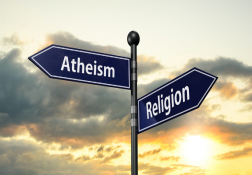 September 20 2021
The turning tide of intellectual atheism
September 20 2021
The turning tide of intellectual atheism
"I was brought up an atheist--I didn't become one," he said. "I regard atheism as the religious faith I happened to be brought up in. It is, of course, as much a faith as Christianity or Islam--and I have the Calvinist brand, because my parents left the Church of Scotland. I was brought up, essentially, in a Calvinist ethical framework but with no God.
Read more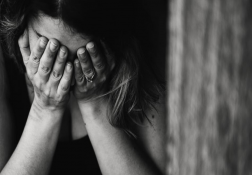 September 17 2021
Christian responses and perspectives on euthanasia and assisted suicide
September 17 2021
Christian responses and perspectives on euthanasia and assisted suicide
As we attempt to develop an authentic Christian response to assisted suicide and other forms of medical killing, we need to start with an understanding of creation, and in particular of the created moral order, the moral principles that God has embedded into the structure of the universe. God did not just create the physical stuff of the universe, atoms and molecules and photons. He also created a hidden moral order, like the grain imprinted in a piece of wood.
Read more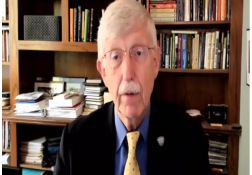 September 14 2021
Francis Collins 'a bit' frustrated with evangelicals amid COVID-19 vaccine push
September 14 2021
Francis Collins 'a bit' frustrated with evangelicals amid COVID-19 vaccine push
Collins said he hopes the "much more muscular requirements" will make "a big difference" in reducing the number of unvaccinated Americans, noting the country needs to vaccinate at least five times the 800,000 who are being vaccinated daily in order to overcome the variant.
Read more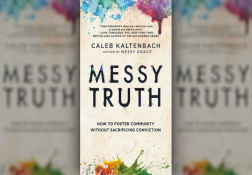 September 09 2021
He Was Raised by 3 Gay Parents and Vowed to Never Become a Christian -- But His Quest to Disprove the Bible Changed Everything
September 09 2021
He Was Raised by 3 Gay Parents and Vowed to Never Become a Christian -- But His Quest to Disprove the Bible Changed Everything
That journey led Kaltenbach and his family into years of pro-LGBTQ activism where he often encountered hate and anger from some who called themselves Christians -- people who left him feeling in his early years as though he'd never want to be part of the faith.
Read more September 03 2021
Is the Texas 'Heartbeat Bill' the End of Roe v. Wade?
September 03 2021
Is the Texas 'Heartbeat Bill' the End of Roe v. Wade?
The reason this case, in particular, is of such intense interest to both sides of the abortion debate is because the law in question, Senate Bill 8, seems to effectively ban abortion after about six weeks of pregnancy. Unlike the Mississippi law that will come before the Court this year, this law is different. It is not enforced by the state but rather by private persons who can sue anyone involved in an abortion--except the woman seeking the procedure.
Read more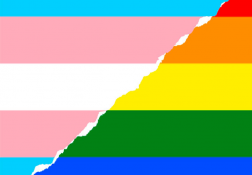 September 03 2021
Welsh LGBT plan ‘could lead to prosecution’ of church leaders
September 03 2021
Welsh LGBT plan ‘could lead to prosecution’ of church leaders
Andrea Williams, chief executive of Christian Concern, commented, “Ever since the government announced plans to ban ‘conversion therapy’, we’ve warned that the ban would hit Christian ministries and pastors the hardest. Now even the Welsh government has recognised the danger, but brushed religious freedom concerns aside.”
Action plan pledges to ban ill-defined ‘conversion therapy’
Read more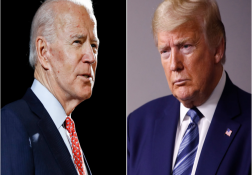 September 03 2021
Most white regular churchgoers voted for Trump in 2020, religious nones backed Biden: study
September 03 2021
Most white regular churchgoers voted for Trump in 2020, religious nones backed Biden: study
According to the analysis by Pew Research assistant Justin Nortey, overall, 59% of voters who attend worship services at least monthly voted for Trump, while 40% voted for Biden. The less voters attended church services, however, the more likely their support was for Biden. Some 58% of white voters who attend worship services just a few times a year voted for Biden, while 40% of that crowd voted for Trump.
Read more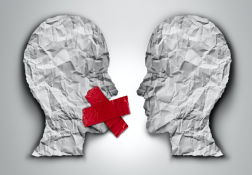 August 25 2021
The Cancel Culture Paradox
August 25 2021
The Cancel Culture Paradox
But as I wrote the piece I was keenly aware of a paradox. First, it's clear that a large number of Americans are afraid to share their views, and for good reason. A recent CATO Institute survey found that 62 percent of Americans agree that "the political climate these days prevents me from saying things I believe because others might find them offensive."
Read more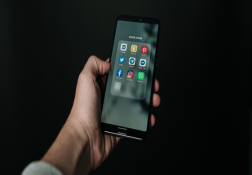 August 05 2021
How Big Tech Targets Faith Groups for Censorship
August 05 2021
How Big Tech Targets Faith Groups for Censorship
All told, our survey looks at 25 major companies and subsidiaries. We found that 21 have user agreements that could easily and inappropriately be used against religious groups. While the language differs and is typically vague (which is a big part of the problem) the reality is largely the same: most tech companies claim unilateral power to ban religious groups for advocating constitutionally-protected viewpoints not shared by the company.
Read more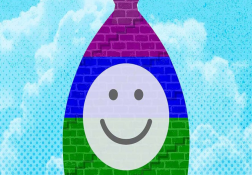 July 27 2021
America's new religion: Fake Christianity
July 27 2021
America's new religion: Fake Christianity
"This counterfeit religion is Moralistic Therapeutic Deism," stated Ms. Bratton, "a worldview that has quickly gained prominence and given many Americans a theology that looks nothing like historical Christianity, despite what they may claim." She then goes on to cite the recent work of George Barna, whose February survey showed that Moralistic Therapeutic Deism (MTD), or -- watered-down, feel-good, fake Christianity -- is the most popular worldview in the United States today.
Read more


